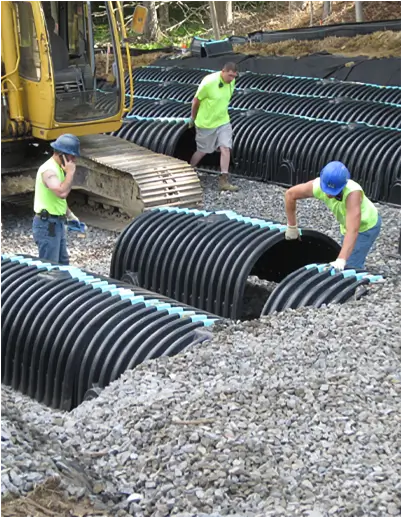Dec . 06, 2024 08:05 Back to list
HDPE Pipes for Safe Drinking Water Supply Solutions
The Importance of HDPE Pipe for Drinking Water Distribution
High-Density Polyethylene (HDPE) pipes have become an essential component in the infrastructure of drinking water distribution systems around the globe. Known for their durability, flexibility, and corrosion resistance, HDPE pipes provide an ideal solution for transporting potable water in both urban and rural settings. This article explores the various advantages of using HDPE pipes for drinking water, their applications, and their impact on public health and the environment.
Advantages of HDPE Pipes
1. Durability and Longevity One of the primary benefits of HDPE pipes is their remarkable durability. HDPE is resistant to impact, wear, and corrosion, which means that these pipes can withstand harsh environmental conditions without degrading over time. This longevity greatly reduces the need for frequent replacements and repairs, making HDPE a cost-effective option for municipalities and water utility companies.
2. Chemical Resistance HDPE pipes are known for their excellent resistance to a wide range of chemicals, making them safe for transporting drinking water. Unlike metal pipes, which can corrode and leach harmful substances into the water supply, HDPE pipes maintain their integrity and ensure that the water remains untainted.
3. Lightweight and Easy to Install Another significant advantage of HDPE pipes is their lightweight nature, which simplifies transportation and installation. Compared to traditional materials like PVC or steel, HDPE pipes are easier to handle, require less manpower, and can be installed more quickly, leading to reduced labor costs and project timelines.
4. Flexible Design HDPE pipes possess a high degree of flexibility, allowing them to be easily routed around obstacles during installation. This flexibility also enables the pipes to absorb pressure fluctuations and shock loads, reducing the risk of rupture or leaks in the system.
5. Reduced Leakage The fusion welding process used to join HDPE pipes creates a seamless connection with fewer joints, significantly minimizing the risk of leaks. This characteristic is particularly crucial for drinking water systems, as leaks can lead to water loss and contamination issues.
Applications of HDPE Pipes in Drinking Water Systems
hdpe pipe for drinking water products

HDPE pipes are used in various applications within drinking water distribution systems. They are ideal for conveying water in both pressurized and gravity-fed systems. Common use cases include
- Municipal Water Distribution HDPE pipes are extensively used in municipal infrastructure for the transport of potable water from treatment facilities to households and businesses. Their resistance to corrosion and chemicals ensures that the water remains safe for consumption.
- Rural Water Supply In rural areas where access to drinking water is limited, HDPE pipes provide a reliable solution for creating sustainable water supply systems. Their ability to withstand harsh environments makes them ideal for remote locations.
- Fire Protection Systems HDPE pipes are increasingly being utilized in fire protection systems for municipalities. Their high flow characteristics and durability help ensure that sufficient water pressure is maintained in the event of a fire emergency.
Public Health and Environmental Impact
The choice of HDPE pipes for drinking water distribution is not merely a matter of engineering; it also has significant implications for public health and environmental sustainability. By minimizing the risk of contamination and leakage, HDPE pipes help protect public health by ensuring safe drinking water availability. Additionally, the long lifespan of these pipes reduces the environmental footprint associated with pipe production and disposal.
Moreover, HDPE is recyclable, which underscores its sustainability. When removed from service, HDPE pipes can be processed and repurposed for various applications, further reducing waste and promoting a circular economy in the plastic industry.
Conclusion
In summary, HDPE pipes offer numerous benefits as a material for drinking water distribution. Their durability, chemical resistance, and ease of installation make them a favorite choice across various applications. As communities strive for more efficient and reliable water supply systems, the role of HDPE pipes will only continue to grow. By choosing HDPE for drinking water distribution, municipalities and water utility companies can contribute to public health and environmental sustainability, ensuring access to safe drinking water for generations to come.
-
Durable DN500 HDPE Double Wall Corrugated Drain Pipes
NewsAug.06,2025
-
32mm HDPE Pipes Coil: Durable & Flexible Water Supply
NewsAug.05,2025
-
DN100 PVC Well Casing Pipes | Durable Corrosion-Proof
NewsAug.04,2025
-
HORON 25mm PPR Plumbing Pipes - AI-Enhanced & Reliable
NewsAug.03,2025
-
HORON 25mm PPR Pipes - AI-Optimized Plumbing Excellence
NewsAug.02,2025
-
Premier HDPE Sprinkler Pipe Manufacturers | Durable Solutions
NewsAug.01,2025

